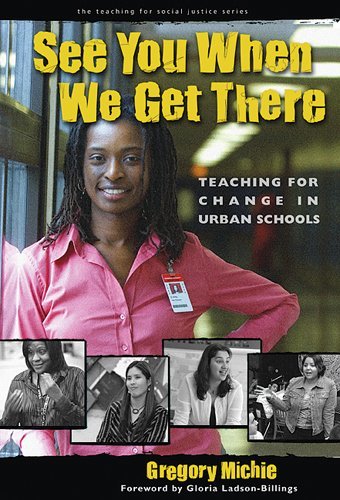What do you think?
Rate this book


Gregory Michie’s first bestseller, Holler If You Hear Me, put him on the map as a compelling and passionate voice in urban education. In his new book, Michie turns his attention to young teachers of color, and once again provides readers with a unique and penetrating look inside public school classrooms. Featuring portraits of five young teachers (two African Americans, two Latinas, and one Asian American) who are “working for change,” Michie weaves the teachers’ powerful voices with classroom vignettes and his own experiences. Along the way, he examines what motivates and sustains these teachers, as well as what they see as the challenges and possibilities of public education
“An antidote to the mindless tactics of punish, test, and punish again that hold our schools hostage.”
—From the Foreword by Gloria Ladson-Billings
“A refreshing look at how five inner-city teachers challenge the factory-model approach that characterizes the schooling experiences of so many youth today.”
—Angela Valenzuela, author of Subtractive Schooling
“Provides us with important insights into the motivations of dedicated young teachers.”
—Pedro Noguera, author of City Schools and the American Dream
“This is a hopeful book—a reminder that we still have a chance to get this right for the kids.”
—Penny Lundquist, Golden Apple Foundation for Excellence in Teaching
224 pages, Kindle Edition
First published January 1, 2004